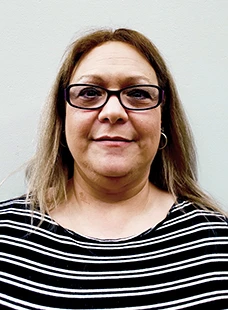

“I think it’s really unfair,” Allison exclaims. “I need to take medication for my blood pressure and depression.” Allison Holm works as a part-time cashier at Winn-Dixie and takes care of her 19-year-old son who is developmentally disabled. When her youngest child turned 18, she lost her Medicaid insurance, and, like many low-wage and part-time Florida workers, she does not receive insurance from her employer. Additionally, because her earnings are below the federal poverty level, $21,330 for a household of three, she is not eligible for a subsidy that would make Marketplace insurance affordable. Although she needs health care, she is left with no path to affordable coverage.
Allison says, “I feel the Florida Legislature doesn’t care because they have health insurance.”
Since losing Medicaid, she relies on community clinics for basic primary care, and she is grateful for their help. But she worries about the future, and the possibility of getting cancer, or being in an accident, or needing to see a specialist, all services requiring health insurance. “It just stinks, to say the least,” Allison says, “I feel the Florida Legislature doesn’t care because they have health insurance.” If Florida were to expand Medicaid eligibility, Allison would have the coverage she needs, and the ability to take care of herself and her son.
“I think it’s really unfair,” Allison exclaims. “I need to take medication for my blood pressure and depression.” Allison Holm works as a part-time cashier at Winn-Dixie and takes care of her 19-year-old son who is developmentally disabled. When her youngest child turned 18, she lost her Medicaid insurance, and, like many low-wage and part-time Florida workers, she does not receive insurance from her employer. Additionally, because her earnings are below the federal poverty level, $21,330 for a household of three, she is not eligible for a subsidy that would make Marketplace insurance affordable. Although she needs health care, she is left with no path to affordable coverage.
Allison says, “I feel the Florida Legislature doesn’t care because they have health insurance.”
Since losing Medicaid, she relies on community clinics for basic primary care, and she is grateful for their help. But she worries about the future, and the possibility of getting cancer, or being in an accident, or needing to see a specialist, all services requiring health insurance. “It just stinks, to say the least,” Allison says, “I feel the Florida Legislature doesn’t care because they have health insurance.” If Florida were to expand Medicaid eligibility, Allison would have the coverage she needs, and the ability to take care of herself and her son.

